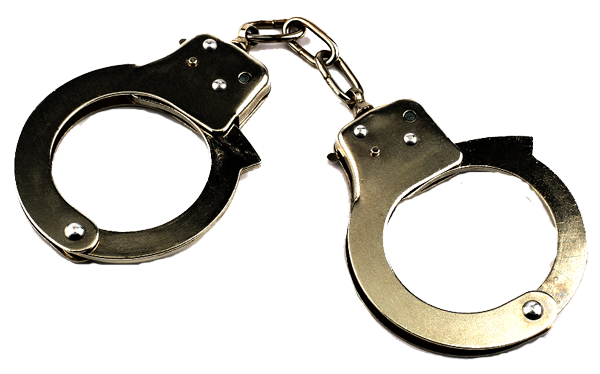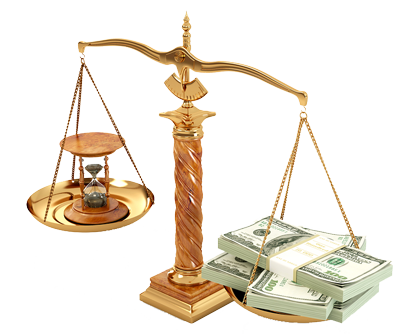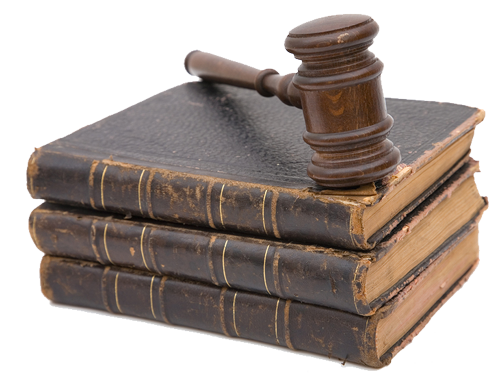Criminal Law
 Criminal Law includes both felonies (more serious offenses -- like murder or rape) and misdemeanors (less serious offenses -- like petty theft or jaywalking) at both Federal and State courts. Felonies are usually crimes punishable by imprisonment of a year or more, while misdemeanors are crimes punishable by less than a year. Whether you are under investigation, recently arrested or already indicted, your freedom is at stake. The attorneys at Lynch & Van Dyke have the knowledge and experience to protect your rights.
Criminal Law includes both felonies (more serious offenses -- like murder or rape) and misdemeanors (less serious offenses -- like petty theft or jaywalking) at both Federal and State courts. Felonies are usually crimes punishable by imprisonment of a year or more, while misdemeanors are crimes punishable by less than a year. Whether you are under investigation, recently arrested or already indicted, your freedom is at stake. The attorneys at Lynch & Van Dyke have the knowledge and experience to protect your rights.
We represent defendants for all criminal law cases including federal and state criminal law. We have experience in many different areas including individuals charged with drug trafficking, murder, manslaughter, assaults of all kinds, burglary, robbery, sex offenses and vehicle offenses (such as operating under the influence).
Our attorneys have handled dozens of complex felony cases in State and Federal court. We also handle white collar offenses such as benefit, insurance or tax fraud.
We will help you through a difficult time by providing comprehensive legal representation as well as a strong customer service experience throughout the investigation and potential trial. We understand that it is a criminal investigation and a difficult situation to find yourself in, and we want to make the entire experience as smooth as possible.
Our attorneys will be working tirelessly on your behalf as soon as you contact us for your initial consultation. We will investigate the unique circumstances surrounding your case and charge, as well as any relevant laws or statutes that might give you a better chance at a positive result. We will handle any interaction with law enforcement or another third party as they conduct their research and attempt to build a case against you. Our goal is to have your charge dropped or lessened as much as possible, but if your case ultimately reaches trial, we will be advocating on your behalf and making sure that your rights are protected throughout the process. Even after the conclusion of your trial, our attorneys will work with you to resolve any issues that linger from your charge. We want to make sure that your life is impacted as minimally as possible by the charge you are facing, and we will help make that happen to the best of our abilities.
Personal Injury
 Lynch & Van Dyke handles all personal injury cases, including car accidents, and we take care of negotiation for any and all settlements. If for any reason we are unable to negotiate a settlement, we represent you during trial.
Lynch & Van Dyke handles all personal injury cases, including car accidents, and we take care of negotiation for any and all settlements. If for any reason we are unable to negotiate a settlement, we represent you during trial.
Screeching tires and shattered glass: You’ve just been injured in a car accident.
But what if we told you the worst might be yet to come? Battling for months with insurance companies to pay your claim is sometimes worse than the accident itself. You have to deal with, mounting medical bills, lost earnings, car repairs, and physical and emotional pain, all while fighting an insurance company that makes money by taking as long as possible to pay you as little as possible.
Unfortunately, many people wait until after an auto accident to find out if they can handle insurance adjusters themselves, fearing a car accident lawyer may be too expensive. The reality is it’s more costly to do it on your own. When you are injured in an automobile accident, relying on your limited understanding of the confusing rules and regulations involved with this process can cause you even more harm. An experienced personal injury attorney will be invaluable in assisting you in filing your auto accident claim.
Every day we hear from people who’ve had their lives turned inside out from a disabling injury or death of a loved one. Accident victims and their families face countless difficulties and disruptions in their lives. Our mission is to help get your life back to normal. If you’ve been involved in a car accident, you may think that you will never be the same. The experienced accident lawyers at Lynch & Van Dyke can simplify this exhausting process. We’ll deal with the insurance company and make sure you get the settlement you deserve.
At Lynch & Van Dyke, you can concentrate on getting better and we’ll handle the rest. If you or a loved one has been injured in an auto accident call us today and we’ll put our experience to work for you. We have a long and esteemed tradition of success. We have handled thousands of cases just like yours and recovered millions of dollars on behalf of our clients.
Medical Malpractice

Medical malpractice refers to treatment by a medical professional which, usually due to medical negligence, causes an undue injury to the patient. Medical malpractice laws, and lawsuits are designed to give patients injured by negligent medical care a way to recover monetary compensation to make up for their injury or damages.
Medical malpractice laws vary by state, but there are four fundamental elements in any medical malpractice case.
These are: 1. Duty, 2. Negligence, 3. Injury and 4. Causation.
Doctors Duty to Patients
Every medical professional has a duty to treat patients in such a way as to minimize potential for further injury. In general, the doctors duty can be broken up into four basic parts:
1. Medical Knowledge
Every medical professional should, through extensive education and training, have a level of knowledge required to competently practice in his or her area of specialty.
2. Requisite Skills
In addition to knowledge of their medical field, a doctor must possess the requisite skills to be able to apply medical knowledge to treat their patients. This skill can best be illustrated by the level of skill a surgeon would require to operate on a patient without inflicting unnecessary harm.
3. Level of Care
Every doctor, when treating a patient, must exercise a level of care that is standard in their medical profession. That is to say, every doctor is held to practice their specialty in such a way as is standard, such that any other doctor would exercise the same level of care in a given situation.
4. Judgment of a Medical Professional
A doctor must utilize his or her extensive education, experience and training in order to exercise judgment with regards to the treatment of patients. Decision regarding the treatment of a patient by a doctor should be consistent with the medically accepted standard of care.
At Lynch & Van Dyke, we believe that a doctor has a duty to deliver the best possible care.
Breach of Duty - If a doctor fails to treat a patient in such a way that meets all four of the above criteria, then the doctor has breached their duty to their patient, and may be held liable for medical negligence.
Medical Negligence
Medical negligence can be defined as the treatment by a doctor that does not meet the medically accepted standard of care. It is a breach of duty by a doctor to perform his or her job as required by their duty.
Negligence and the Standard of Care
The standard of care is best described as the guidelines by which medical treatment and study has found to treat a wide variety of illness and injury. For any given medical scenario, there is an accepted standard to which a doctor must adhere in order to best treat the patient. If the doctor deviates from that standard of treatment, then she is said to be negligent.
Much like the driver of a car failing to stop at a stop sign, if a doctor fails to adhere to the medical standard then he or she risks causing further injury.
Accidents happen, but in a medical malpractice case, a physician’s inattentiveness can lead to devastating results. At Lynch & Van Dyke we will fight to make it right.
Injury to the Patient
The third aspect of a medical malpractice case is some type of injury, or damages, suffered by the patient. In civil law, it is a requirement that some form of damages be present in order to bring a civil action against another party.
For example, in a car accident, the negligent driver (the one found at fault) will be held to pay for all the property damage, medical expenses and non-economic damages caused by their negligent driving.
Similarly, in a medical malpractice case, there must be some form of damages done to the patient in order to seek legal remedy.
In a medical malpractice lawsuit, the prosecution will demand compensation for the damages. In our system of justice, the only compensation available is money, so the lawsuit will demand some amount of money be paid to the injured patient.
The amount of money demanded by the lawsuit is directly related to the injury caused by the medical malpractice. Without some type of damages there is nothing for which to demand compensation.
Causation: The Link Between Injury and Negligence
The fourth element of a medical malpractice case is a legal concept called causation. In order for a medical malpractice case to have merit in court, it must be established that the negligence in treatment by the medical professional directly caused the injury.
This can be difficult to prove, and requires that a third party medical expert witness investigate the details of the case and show how the negligent medical care directly contributed to an undue injury to the patient.
For example, if during a surgical procedure a doctor fails to operate with the requisite care and unintentionally cuts an internal organ, he or she will be liable for any injury caused by that unintentional cut. Of course in reality, causation is rarely that simple.
Commonly, there will be some more subtle error on the part of the medical professional that will be the cause of damages to the patient. This is why it is necessary for a medical professional to act as professional witness in every medical malpractice case. It takes someone with expertise and experience in the same field of medicine as the doctor being sued to examine the case and establish a causal link between the negligent care and the damages incurred by the patient.
At Lynch & Van Dyke, we locate the finest experts. We avoid the well-known “hired guns” used by other law firms and instead use experts who actually treat patients; teach in medical colleges; and are the foremost experts in their specialties.
Civil Litigation
 Civil litigation is a legal dispute between two or more parties that seek money damages or specific performance rather than criminal sanctions. A lawyer who specializes in civil litigation is known as a “litigator” or “trial lawyer.” Lawyers who practice civil litigation represent parties in trials, hearings, arbitrations and mediations before administrative agencies, foreign tribunals and federal, state and local courts. There are many different and sometimes confusing steps that have to be followed. The attorney’s at Lynch & Van Dyke are experts in civil litigation.
Civil litigation is a legal dispute between two or more parties that seek money damages or specific performance rather than criminal sanctions. A lawyer who specializes in civil litigation is known as a “litigator” or “trial lawyer.” Lawyers who practice civil litigation represent parties in trials, hearings, arbitrations and mediations before administrative agencies, foreign tribunals and federal, state and local courts. There are many different and sometimes confusing steps that have to be followed. The attorney’s at Lynch & Van Dyke are experts in civil litigation.
Civil litigation can be divided into seven stages: investigation, pleadings, discovery, pre-trial, trial, settlement and appeal. Not every lawsuit passes through each stage of litigation; most lawsuits are settled prior to trial and many cases that reach a trial verdict are not appealed.
The lifespan of a lawsuit can range from several months to several years. Complex civil litigation often takes years to pass from pre-suit investigation through trial/settlement.
Discovery is the longest and most labor-intensive stage of civil litigation. Contrary to the image portrayed by television, civil litigators spend little time in trial; most time is devoted to the discovery stage of litigation.
Divorce/Family Law
 With our experience in family law, we represent all individuals or couples seeking divorce, as well as those who are unmarried with children. Our team of experienced attorneys handles custody, property division, spousal support, and child support, and we work directly with the other party or their attorney in settlements. When necessary, we attend hearings before a family law judge.
With our experience in family law, we represent all individuals or couples seeking divorce, as well as those who are unmarried with children. Our team of experienced attorneys handles custody, property division, spousal support, and child support, and we work directly with the other party or their attorney in settlements. When necessary, we attend hearings before a family law judge.
Divorce and Family Law in Maine
Step One
Get legal advice from an experienced Maine divorce and family law attorney or at least research the subject.
Step Two
Generally, one of three complaints are filed: Complaint for Divorce- with children; Complaint for Divorce- no children; or, for parents who are unmarried, Complaint for Determination of Paternity, Parental Rights & Responsibilities, & Child Support. The other party will be served the complaint and accompanying documents that will also need to be filed with the court.
The complaints just mentioned are called original proceedings. Any motion/complaint filed after the completion of the original proceedings is likely to be one of three post-judgment motions: Motion to Modify Divorce or Parental Rights and Responsibilities Order; Motion to Enforce; and/or Motion for Contempt. Whether it is a post-judgment motion or an original proceeding, the same general steps are followed; however, not all steps are required and the process is more streamlined for post-judgment motions, particularly when modifying child support only.
Step Three
The parties are scheduled for an initial appearance before a Magistrate. A Magistrate has much of the same authority as a District Court Judge, but only in the family law realm. Depending on the court, it may take 4 to 8 weeks after filing the complaint and serving the other party before a person appears in front of the Magistrate. In post-judgment matters that are less complicated, the case might be heard the day of the initial appearance.
In order to move the case along and ultimately get the parties to a final hearing, if necessary (most cases settle by agreement of the parties prior to a final hearing), the Magistrate will attempt to determine what issues are in dispute, such as child support, visitation, and property distribution. If the parties agree on certain issues, the Magistrate will enter an interim order that reflects those agreements and indicates what issues still need to be resolved.
Step Four
The next step is usually mediation, although a party may request a hearing on a motion for orders prior to judgment. The motion might ask the court to determine where the child(ren) lives and which party stays in the marital home during the pendency of the proceedings.
Step Five
Next will be a status conference scheduled before the Magistrate. At the status conference, the Magistrate will review what happened at mediation. If all issues have been agreed upon, the Magistrate is likely to hold an uncontested final hearing, enter the agreement on the record, and enter a written order. At this point the case would end.
If there is not agreement, several things can happen: the court could schedule further mediation, schedule an interim hearing, or set the case for a final hearing. If the court sets the case for trial this conference will be used as a pretrial conference. Depending on the court, it could go on a trailing docket or be date certain. Family dockets in the Maine courts can be confusing and some procedures are court specific.
Step Six
If the parties are scheduled for further mediation, this is the next step. If there is an interim hearing, the parties will attend a formal evidentiary hearing at which the Magistrate will take evidence and make a decision that will be binding until the time a final order is entered (after a final hearing). Otherwise, the next step is the final hearing. Even so, the Magistrate could schedule another conference to be used as a pretrial conference. A pretrial conference is used to determine the issues in play, what witnesses may be called, the number of possible witnesses to be called, and any number of other evidentiary issues.
Step Seven
The last step is the final hearing. The final hearing will determine an outcome for all issues remaining in dispute. If an appeal is made by either party, the final order controls until the appeal is ruled on. A party has 21 days to make an appeal after the final order is entered; however, the parties can sign a waiver of appeal form to be attached to the final judgment thereby making the judgment final at the time of execution.
*An important consideration in cases where children are involved is that a guardian ad litem (GAL) may be appointed for the children by the court. A guardian ad litem can be appointed at any time prior to a final judgment.
* The steps listed above are a simplified explanation of the Maine divorce and family law process. Usually there is a period of discovery where parties are able to seek financial information pertaining to one another. It is common that one more of an array of different motions is filed by either or both parties. A guardian ad litem may be appointed if there are children. These cases can be considerably more complicated than would be indicated as set out above. In other cases the steps may be abbreviated. For instance, in some courts, at the initial appearance for a motion to modify child support the parties might have mediation, a case management conference, and a hearing all in the same day. Some courts might use the initial appearance as a pretrial conference depending on the issues left to be resolved.